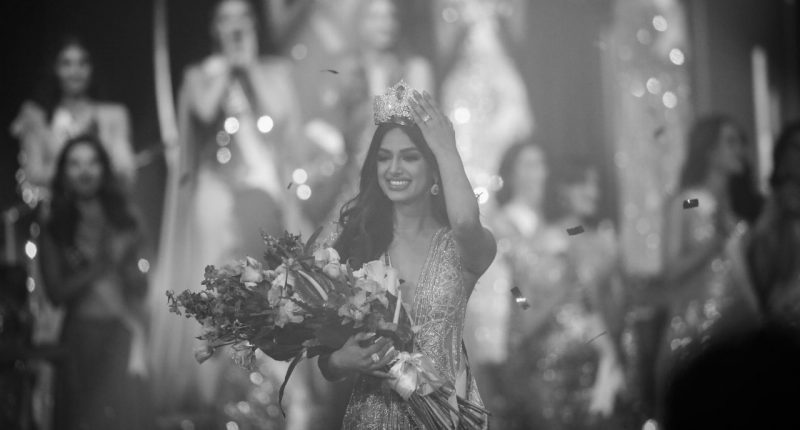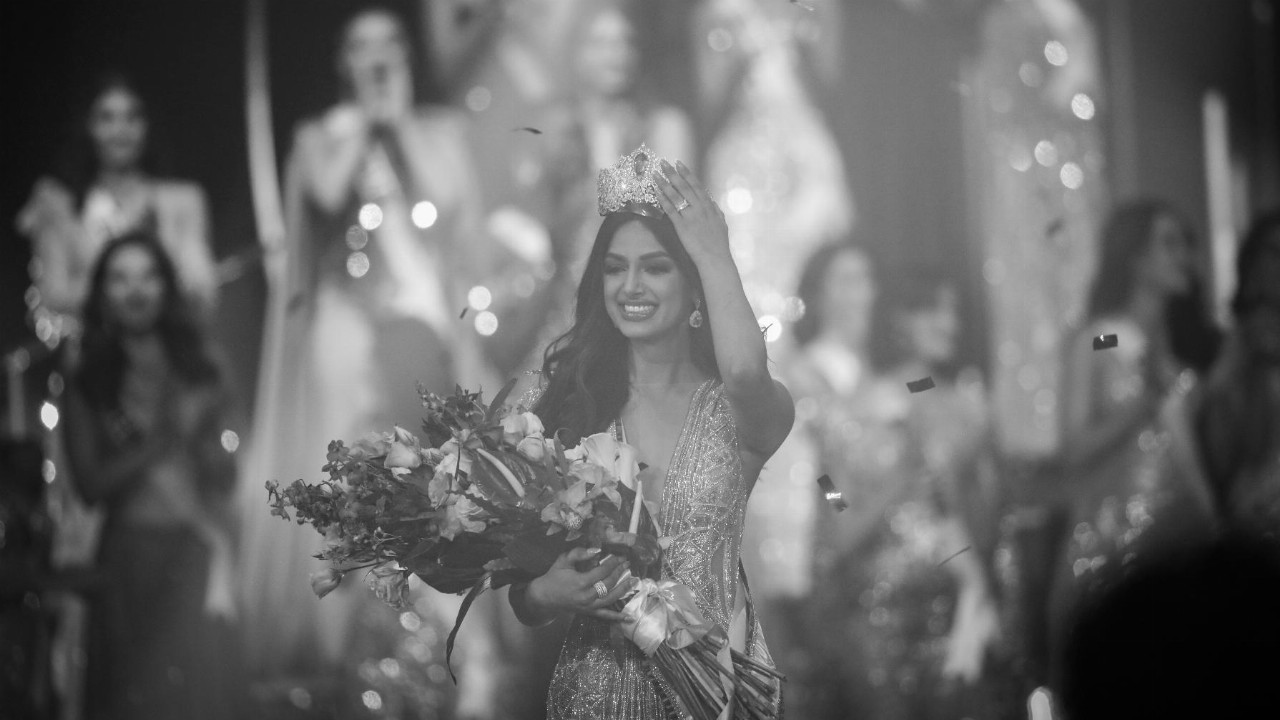In today’s era of climate change and geopolitical and social upheaval post the #MeToo movement, the sentiment around beauty pageants, such as the upcoming Miss Universe competition, doesn’t sit easily.
Long demonised by feminists who deem pageants — where young women parade in skimpy swimwear and gowns — patriarchal and degrading, they’re largely seen as reinforcing unrealistic standards of beauty on women.
Indeed, where does a contest judged predominantly on beauty fit in the 21st century? The general opinion is it objectifies women, promoting shallow, misogynistic and sexist attitudes. But there have been some interesting changes afoot.
In October, Thai transgender tycoon and activist Anne Jakapong Jakrajutatip, a former reality show star, bought the Miss Universe Organisation for US$20 million through her Thailand-based conglomerate, JKN Global Group.
A noteworthy development, considering it was part-owned from 1996 until 2015 by former US president Donald Trump. He of the infamous quote about the benefits of being a famous man in the company of attractive women: “When you’re a star, they let you do it. You can do anything. Grab ‘em by the pussy. You can do anything.”
Trump sold Miss Universe to events marketing company IMG Worldwide. It’s rated as the most prestigious pageant among its peers: Miss World, Miss International and Miss Earth. Will its transgender owner confer a modern touch to a traditional fixture and advocate for more inclusiveness, for participants to enact positive change?
According to the organisation’s press releases, inclusiveness is already entrenched. In 2018, a Spanish contestant became the first transgender woman to participate in the competition while the first openly gay woman from Myanmar competed in 2019.
But on the broad scale, it appears to be simply catering to the optics. What are beauty pageants for? Or is it all about money?
Let’s consider the figures. It earns US$5 million in annual revenue, Al Jazeera reports. And despite losing some viewers over the past few years, Miss Universe remains a global phenomenon with an estimated TV audience of about 500 million viewers. Demographic research shows women are keener devotees than men. Perhaps the inference is that if men want to view sexy women, they’d rather watch porn on the internet than pretty young women in swimsuits on stage.
The latest US statistics show Miss Universe was most watched in 2018 by 30- to 49-year-olds, followed by 18- to 29-year-olds, with those aged 50 to 64 the least interested, according to Statista.
Still, the relevance of beauty pageants has most people stumped.
“Feminists have been protesting against the pageants since the 70s . . . Since then, the argument for them is that contestants raise money for charity. That’s very much a smokescreen. They’re pretty offensive, and hard to defend,” Australian academic, author, journalist and feminist Catharine Lumby said.
“But I’m also reluctant to knock young women who participate, because as far as women have come in terms of education and opportunities to work, we still live in a very gendered society where women are evaluated on their looks far more than men. That’s the message some women absorb. For a lot of women their sense of self-worth is tied up with being attractive.”
Let’s spare a thought for the contestants nervously preparing for the big moment in a couple of months, treading a perfectionist tightrope in the fervent hope that fame, fortune, recognition and success beyond their wildest dreams will smile upon them if they win. What of those who aren’t placed? Doubtless they will smile, clap and be crestfallen. But the world can still be their oyster, with recognition generating accolades, social media followers, influencership and reality shows, all of which would be monetised.
On Januray 14, in New Orleans, some 90 women from around the globe will be judged based on a personality interview, and evening gown and swimwear competitions — not to mention the essential component often left unsaid: contestants’ genetically blessed or perhaps cosmetically enhanced facial looks.
When it comes to the body beautiful — that “swimwear” component — a slight compromise has been made. Until now swimwear meant bikinis but for many women this has become culturally problematic, so one-pieces are now permitted. But what woman would sacrifice her chances by not baring a bit of flesh?
The message that “it is a global, inclusive organisation that celebrates all cultures, backgrounds and religions” reflects the desire to adapt or, dare it be said, die:
“We create and provide a safe space for women to share their stories and drive impact. The Miss Universe Organisation (MUO) provides women who participate in this international platform with the tools to affect positive change personally, professionally, and philanthropically serving as inspirational leaders and role models to their communities and fans around the world,” the pageant’s website explains.
Key phrases even obliquely reference feminism: “The MUO community is a sisterhood that is committed to uplifting and empowering one another.”
The term empowering women, massaged into the Miss Universe spiel, is historically antithetical to its image. Perhaps to that end, next year it is relaxing one anachronistic entry restriction adopted since its 1952 inception, which banned women who were married, pregnant or have children.
In a flouting of the rules in 1957, Leona Gage caused a scandal when she was stripped of her crown a day after she won the Miss USA title, when pageant officials learnt she was a married mother of two.
The reason, according to Lumby, for that draconian rule and the one stipulating the entry age remains between 18 and 28 years old derives from stages in traditional gendered terms.
“The teenage years when you start coming into the spotlight and you’re evaluated on your looks and sexiness; the next phase when you’re in your late 20s when you’re meant to have children … it’s the maternal body that’s in focus. After that when your kids grow up, you’re supposed to be invisible. It’s an old-fashioned idea. It’s the idea of a virginal bride,” Lumby said.
But the incentives to win are tantalising: an estimated US$250,000 cash prize, a one-year stay at the Miss Universe pad in New York City, and from thereon countless perks of a lavish lifestyle, including an entrée into modelling with prestigious photographers, access to exclusive events, parties, and paid travel. The piece de resistance is a US$5 million crown encrusted with nearly 2000 diamonds. Even if it’s on loan, it invokes timeless success. Then there’s the privileged title of ambassadorship of the Miss Universe Organisation with its attendant charities and press conferences.
When contestants gather in New Orleans to fight for the coveted role, the question will remain, what’s it all for? Maybe the answer is as simple as The Christian Science Monitor reported in 1983, when it quoted the editor in chief of the Ladies’ Home Journal: “Those beauty contests are as American as apple pie and the Rockettes. It’s silly for anybody to take them seriously as a symbol of anything other than good old American enterprise.”
The quote was prescient, but it seems like a bit of a cop-out. After all, there are genuine questions, says Lumby.
“There’s a feminist line that says women who are strippers or do sex work are brainwashed and abused. Some women choose sex work and exotic dancing and some women choose to participate in beauty pageants — and there’s a market for it. And some women don’t have the same choices as other women when it comes to education and opportunities.”
Most intriguing in the history were feminist demonstrations in 1968 against the Miss America beauty contest in Atlantic City, organised by hundreds of feminists and civil rights advocates. Who would have thought that a beauty pageant protest was regarded as the beginning of the mass feminist movement?
The idea to target the Miss America contest emerged after the New York group watched a movie depicting how beauty standards oppressed women, including clips of a Miss America parading in her swimsuit.
“It got me thinking that protesting the pageant might be a good way to launch the movement into the public consciousness,” one advocate said. “Because up until this time, we hadn’t done a lot of actions yet. We were a very small movement. It was kind of a gutsy thing to do. Miss America was this American Pie icon. Who would dare criticise this?”
Might 2023 be a watershed year, too?
Deborah Cassrels was The Australian’s first Bali-based correspondent and has written extensively on refugees, politics, terrorism, crime and social justice. She was nominated for a Walkley Award in 2016 for her work on terrorism in Indonesia. Her first book, a memoir about her journalism in Indonesia, titled “Gods and Demons”, was published in 2020.





